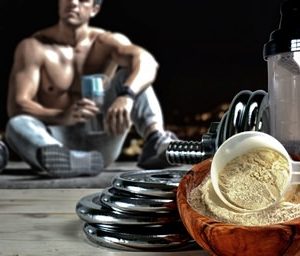Boost Your Iron Levels and Get Better Results
Is an Iron Deficiency Stopping You?
How is iron deficiency stopping you from achieving your goals? Remember back in the day when Popeye ate his spinach for super strength? Spinach is in fact high in iron, along with many other foods, however, the bioavailability of some is better than others. This is still a mineral many woman are sadly lacking and it is creating hidden health issues.
What Does it Do and Why Do we Need it?
 Iron transports oxygen from our lungs through the body. It also helps muscles store and utilize oxygen. Many parts of the body aid in making red blood cells, the majority is done in the bone marrow. Bone marrow helps form all blood cells and is located in the soft tissue in the center of bones
Iron transports oxygen from our lungs through the body. It also helps muscles store and utilize oxygen. Many parts of the body aid in making red blood cells, the majority is done in the bone marrow. Bone marrow helps form all blood cells and is located in the soft tissue in the center of bones
Iron is a part of various enzymes and is used in numerous roles within the cell. Enzymes assist in the digestion of foods, as well as many other key responses that occur in the body. When the body doesn’t have sufficient iron, it can create many symptoms.
What are The Symptoms?
Iron Deficiency Anemia can cause decreased energy and/or weakness, shortness of breath, chest pain, fast or irregular heartbeat, difficulty maintaining body temperature, trouble concentrating, headache, irritability, dizziness, or weight loss, and decreased immune function (which increases susceptibility to infection).
What Can I Do to Naturally Increase My Levels?
Foods that help increase levels include dark green leafy vegetables (spinach), lean red meats, beans, peas, lentils, iron-fortified cereal, liver, poultry, oysters, tofu, fish, and dried fruit such as raisins and apricots.
Vitamin C rich foods help absorb iron more efficiently. Examples of foods high in Vitamin C include broccoli, grapefruit, kiwi, melons, oranges, peppers, strawberries, tangerines, tomatoes.
Skip coffee and tea with your meals since they can interfere with iron absorption. Milk or dairy products, whole grains and legumes can also block iron.
Calcium and antacids must be taken 2 hours before or after iron ingestion. Speak with your pharmacist about any medications you are or begin taking to see if they will reduce the effectiveness of your iron supplementation.
How Does Anemia Effect My Work Outs?
Prior to beginning any exercise program, it is imperative to hire a personal trainer or clinical exercise specialist who has specific knowledge in working with people with anemia. Several considerations must be taken into account when developing a program. The most serious issues with training when anemic, would be the chances of tachycardia (rapid heart rate) or irregular beats. It is imperative to monitor your heart rate when training with a heart rate monitor. You may also experience dizziness, shortness of breath or extreme fatigue. Prior to starting a training program, your exercise specialist will have you see your physician for medical clearance.
Hiring a great personal trainer or exercise specialist will help you achieve your goals in a safe, efficient and expedient time frame. Before you know it, you will be feeling great and looking amazing!
Cathie Glennon, BCRPA-SFL, CSNA Sports Nutrition Advisor, Pharm Tech (Level 3)
https://www.medicinenet.com/iron_and_iron_deficiency/page3.htm#signs_and_symptoms_of_iron_deficiency
https://www.nlm.nih.gov/medlineplus/ency/article/002422.htm
https://www.webmd.com/a-to-z-guides/iron-deficiency-anemia-topic-overview
https://www.mayoclinic.org/diseases-conditions/iron-deficiency-anemia/basics/prevention/con-20019327
-
 Sports Performance and Fitness Nutrition$2,094.75 – $3,144.75
Sports Performance and Fitness Nutrition$2,094.75 – $3,144.75

